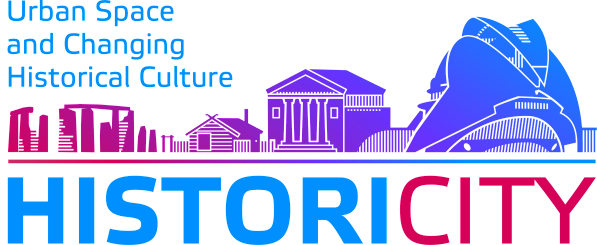HistoriCity: Urban Space and Changing Historical Culture

National Research University Higher School of Economics
Announces an
International conference on
HistoriCity: Urban Space and Changing Historical Culture
Moscow, May 23–24, 2014
Myasnitskaya 20, room 311, 309
PROGRAM
ABSTRACTS
VIDEO
PHOTO DAY 1/ DAY 2
FEEDBACK
The conference was focused on the changing historicity of urban environment and the formation of modern city historical culture. Acceleration of historical time, incessant modernization of urban environment render the status of the Historical in modern city space problematic, change its meaning, and suggest different modes of historicity. Heritage becomes a subject of various kinds of conflicts, such as those between monuments and functional needs of city development, between different concepts of authenticity, or between different modes of urban historical experience. A relativization of historical consciousness deprives historical heritage of internal homogeneity and provokes clashes of different interpretations of objects’ value and authenticity, of city communities’ identities as well as clashes of history and memory.
Inherent conflict becomes typical of relationships between urban environment and cultural institutions, e.g. museums. As early as 1900’s, the German archeologist Adolf Furtwängler wrote about this conflict, pointing out that enthusiasm for museum construction is proportionate to destruction of urban environment which is being substituted for by a forged imitation of the past. Today, the tension between the museum and the city has also a reverse side: the mission of a museum consists in creating a standard representation of history which never can encompass the whole variety of cultural objects and values of the present time. In this sense, the limits of the museum remain problematic, while an expansion of the limits of the present time keeps challenging this cultural institution and, more widely, the practices of heritage preservation as a whole. Partly this challenge has to do with the activity of urban communities producing their own versions of the past and actively advocating them on public arenas.
The mobility of modern society provides the crucial context in which the existence of urban historical heritage today is to be analyzed. The development of tourism industry, with destinations competing for visitors, is among the key factors of urban environment transformation. It drives the designing of city images, the search and mobilization of cultural resources and the activity of other cultural industries. Massification of tourism generates new models of heritage consumption and development. It becomes an important factor of effective management within the experience economy and, at the same time, it propels the search of authentic, uncorrupted, individualized heritage experience.
The conference provided an opportunity for an interdisciplinary discussion of historicity issues in modern cities within the context of various forms of urban development, musealization and tourism industry. Historians, researchers in urban studies, social scientists, as well as specialists in cultural studies, public history, museum studies discussed primarily modern trends, but also historical subjects that helped to contextualize them.
The discussion was focused on the following subjects:
• Conceptualization of the changing historicity of a modern urban environment
• Relationship between heritage objects and practices of city space use
• The image of a city in tourist communication. Transformations of cities’ images and cultural resources management.
• The Museum and the City: ways of interaction. The museum as a cultural center and a tourist attraction.
• Actual art, new media and commemorative practices: ways of interaction.